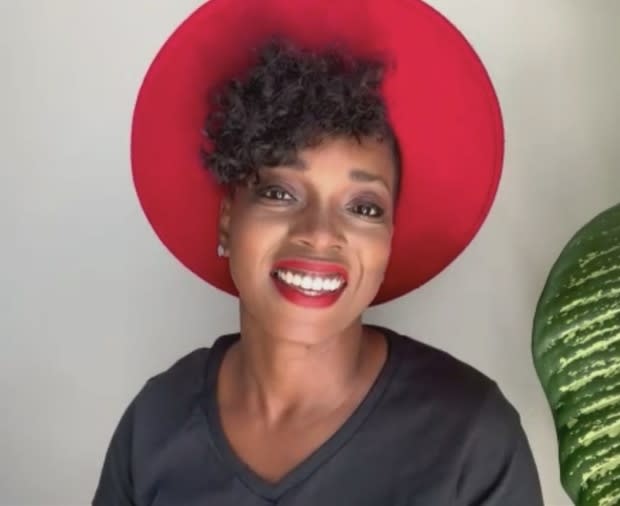For first time in 37 years, Montréal Pride goes digital
Montréal Pride kicks off its week-long celebrations Monday morning, but things will look a little different this year because of COVID-19.
Despite the Quebec government's recent decision to greenlight festivals of up to 250 people, this year's edition of Pride will be held entirely online.
It wouldn't be fair to hold any of the events in person, said Sandy Duperval, a spokesperson with Montréal Pride.
Around 2.4 million people typically attend the festival each year, so having a limit of 250 people in place would mean turning away the vast majority.
"We really want this [festival] to feel inclusive, where everybody's welcome and being able to do it online also keeps our people safe," she said.
"Yes, the restrictions have loosened up, but we don't know what the pandemic will bring."
Duperval said hosting the event online also comes with an added bonus: the ability to interact with event organizers in real-time.
Viewers are encouraged to provide feedback and questions during panel discussions, which Duperval feels will bring members of the community closer together.
This year's edition also strives to take a more intersectional approach, incorporating daily events centred on issues of race, and featuring panels and sharing circles for transgender and non-binary participants.
"Everybody can find a little bit of what they need and the support they need and also let us know if there are other things that we can add for next year," she said.
Every morning, the festival will kick off with a different edition of Afropride — a daily, hour-long discussion led by Black speakers of the LGBTQ community.

Another series of events, hosted by Montréal writer Christopher Diraddo, showcases LGBTQ writers and literature.
While Diraddo himself usually looks forward to watching the parade and dancing along Saint-Catherine Street, he is glad organizers chose to move the festival online instead of cancelling it altogether.
"The main thing, of course, is visibility. I remember when I went to my first gay pride, it was really about seeing other people who were like me," he said. "And I think that is still going to happen."
He also believes holding the events online means the potential to reach an even wider, or different audience.
Move online could exclude some
David Hawkins, executive director at West Island LGBTQ2+ Centre, agrees. He feels that people who live off-island or farther away from the Gay Village will be able to tune in this year and access the events more easily than in the past.
On the flipside, online events have the potential to alienate those who aren't in a safe home environment, he said.
"All of these events are marketed as being overtly queer, overtly gay. If people are coming from an environment where it's not necessarily a safe enough or inclusive enough environment, it might be harder for them to access it."
Montréal Pride runs until next Sunday.

